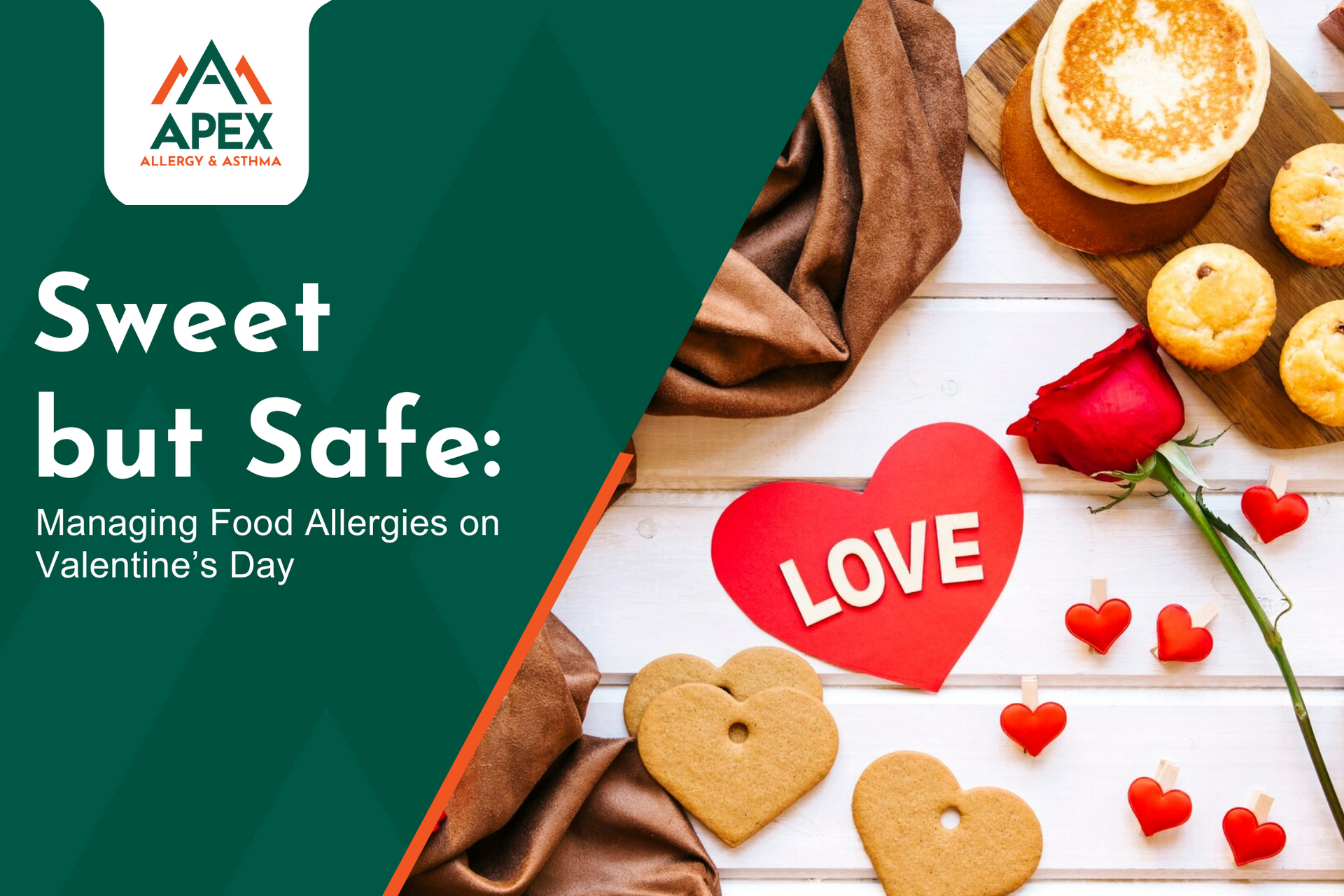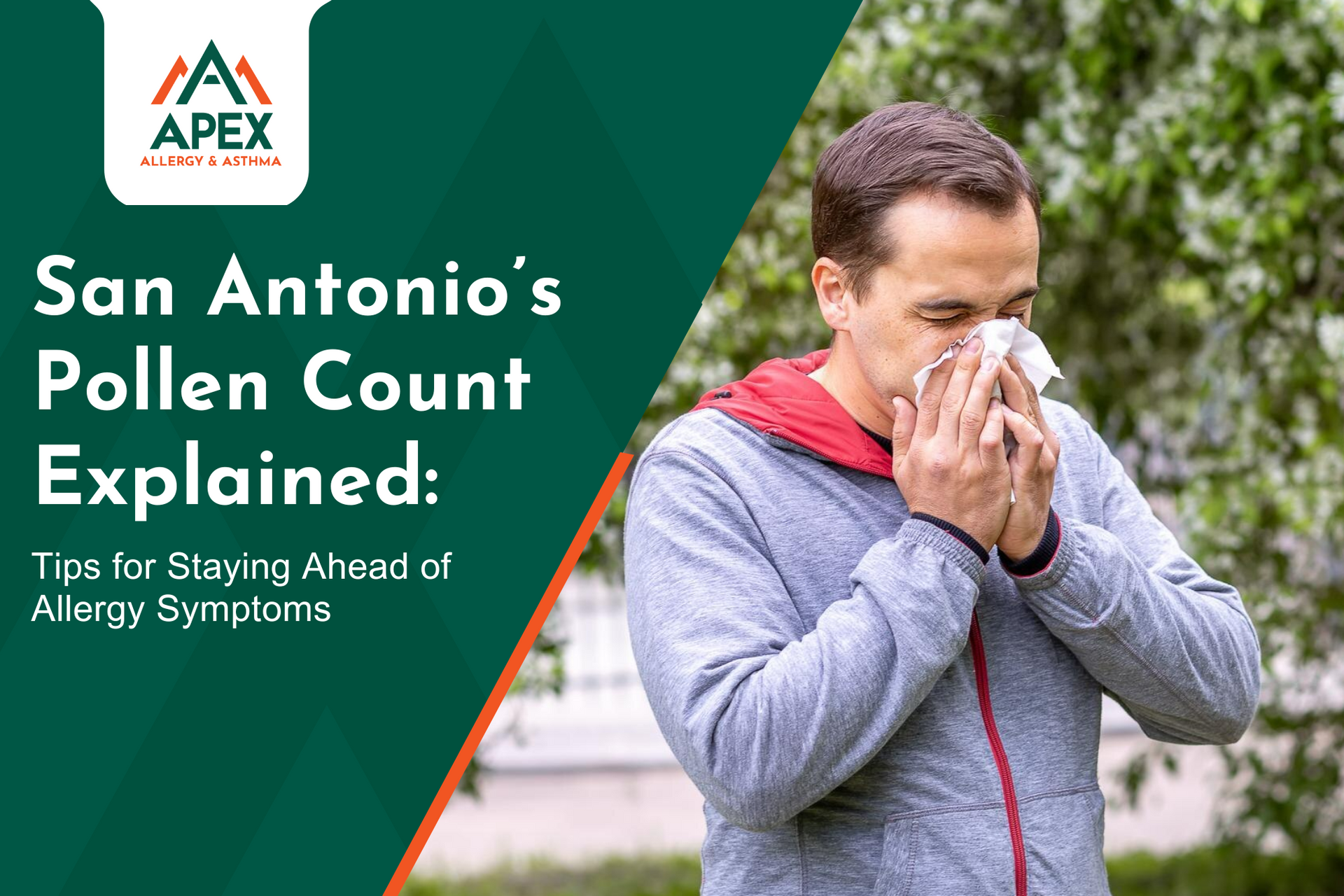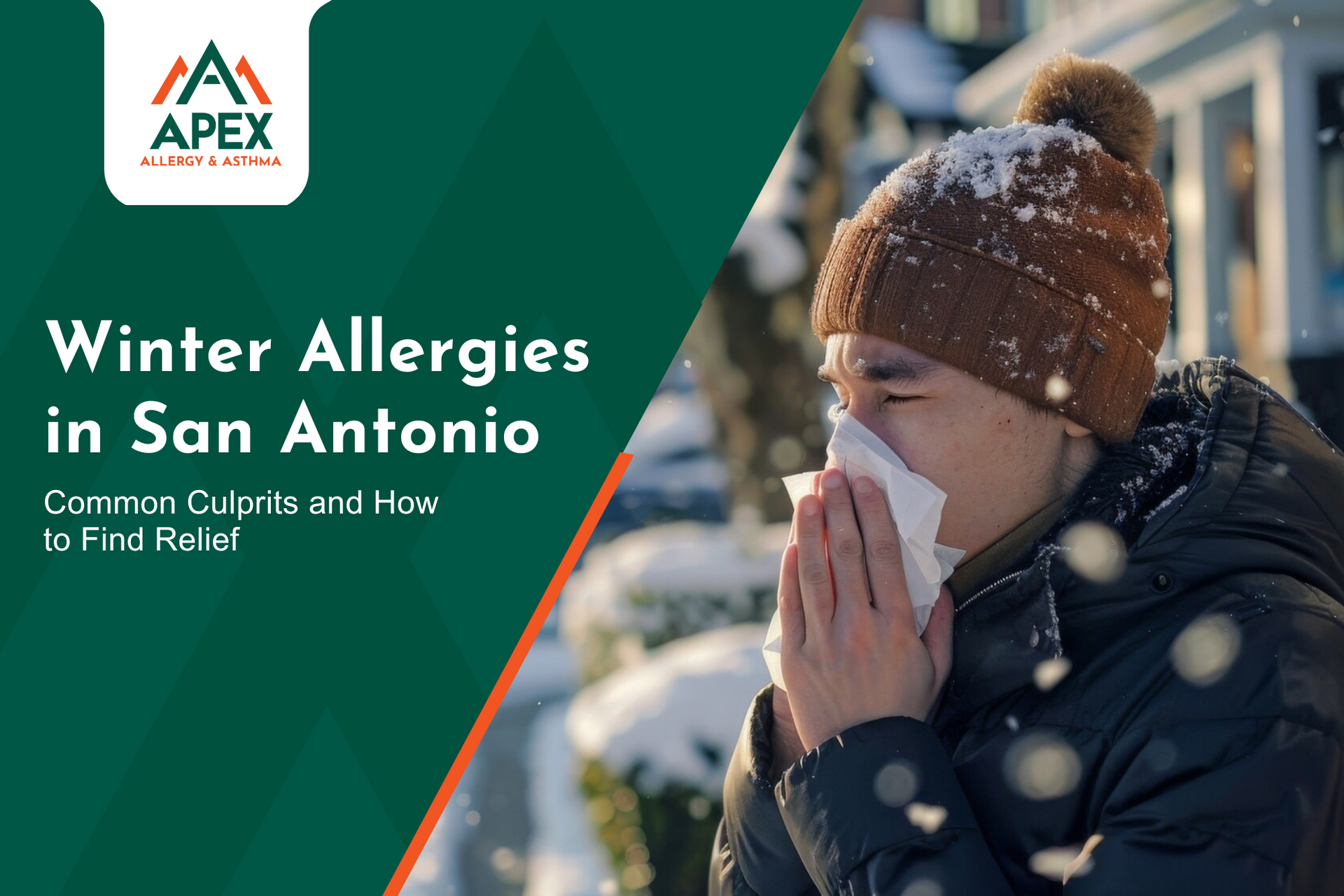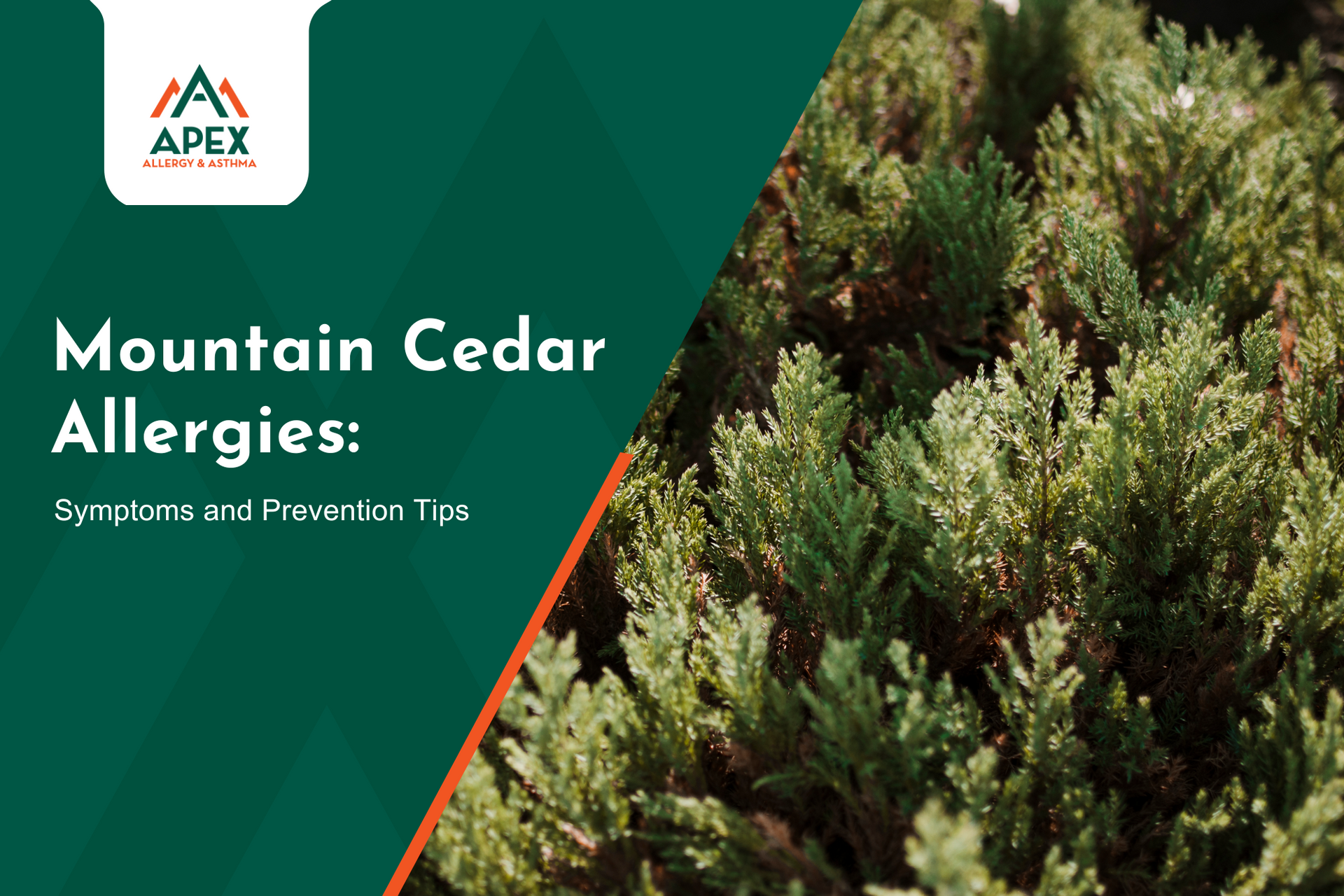Sweet but Safe: Managing Food Allergies on Valentine’s Day

Roses are red, violets are blue, but is that chocolate safe for you? The 14th of February is a time for indulgence, sweet surprises, and romantic gestures, but it can be a worrying time for those managing food allergies on Valentine’s Day. Hidden allergens, cross-contact risks, and ingredient mysteries can turn a romantic evening into a sneezy, itchy disaster.
At
Apex Allergy and Asthma, we understand that special occasions shouldn’t come with a side of anxiety. And food allergies shouldn’t stop you from enjoying love’s sweetest moments! Whether you’re booking a romantic dinner date, exchanging treats, or celebrating with friends, consider this blog your planner for a hearty and healthy Valentine’s Day.
Enjoy an Allergy-Free Valentine’s Day
The Hidden Dangers of Valentine's Day Treats
Giving or receiving sweet, tasty treats on Valentine’s Day is a traditional gesture of affection or appreciation, but it can be unexpectedly risky for those with food allergies. While heart-shaped chocolates, decadent desserts, and fancy restaurant meals are staples of the holiday, they often contain hidden allergens that could ruin your special moment.
Knowing what to watch out for can help you enjoy the day without worry. Here are some of the most common Valentine’s Day food allergies to keep on your radar:
1. Chocolate
Chocolate is a Valentine’s Day classic, but this bold, sweet treat can be a minefield of allergens. Many chocolates contain:
- Dairy – milk chocolate, cream fillings
- Nuts – hazelnuts, almonds, and peanut butter fillings
- Soy – common in chocolate as an emulsifier
- Gluten – found in crispy or cookie-filled chocolates
2. Baked Goods & Desserts
Cakes, cookies, and pastries are popular romantic gestures but frequently contain:
- Eggs – used in most baked recipes
- Wheat/Gluten – a major ingredient in cakes and cookies
- Tree Nuts & Dairy – often used in frostings, fillings, and crusts
3. Restaurant Dishes
Dining out on Valentine’s Day is a romantic treat, but it comes with risks:
- Cross-contamination is common in kitchens handling common allergens like nuts, shellfish, and gluten.
- Hidden ingredients like soy-based sauces, dairy in dressings, or nut oils in cooking can be overlooked.
4. Alcoholic Drinks & Cocktails
Cheers to love? Not so fast. If you have allergies, be extra picky with your drinks, as some may contain:
- Nut-based liqueurs – like amaretto and Frangelico
- Wheat-based beers – Hefeweizen, Belgian-style beers, and some craft lagers
- Dairy in creamy cocktails – such as Bailey’s or White Russians
Beyond ingredients,
cross-contact is another serious concern. Chocolates produced on shared equipment, desserts prepared in bakeries using nut flours, and even restaurant grills used for allergenic foods can all pose risks. Always check labels, ask questions, and opt for allergy-safe alternatives when in doubt.
Don’t worry! With the right precautions, you can still enjoy delicious Valentine’s Day treats without the stress. Next, we’ll share practical tips to keep your celebrations sweet and safe.
How to Plan a Safe Valentine's Day
Just because food allergies add an extra layer of caution doesn’t mean they have to take away the romance! With a bit of planning, you can enjoy a love-filled Valentine’s Day without constantly worrying about food allergies.
Whether you’re celebrating with a significant other or helping a loved one navigate a school or company party, here are some Valentine’s Day food allergy tips to ensure a safe and healthy celebration.
For Couples: Love Without Limits (or Allergens)
From romantic dinners to sweet surprises and heartfelt gestures, Valentine’s Day is about making your loved one feel special. Here’s how to celebrate safely:
- Cook a Romantic Meal at Home: Skip the uncertainty of a restaurant kitchen and create a cozy, allergy-safe dinner together. Choose recipes free from allergens, double-check ingredient labels, and enjoy the intimacy of a home-cooked meal. Bonus points for cooking together, making the day even more special!
- Dine Out the Smart Way: Choose your venue wisely if you’re set on a restaurant date. Make sure to:
- Call ahead to discuss allergen protocols and menu options.
- Visit during off-peak hours to ensure the staff has more time to accommodate your needs.
- Stick with simple dishes to minimize hidden ingredients.
- Think Beyond Food: Valentine’s Day isn’t just about sweet treats! Consider non-food gifts, like:
- A heartfelt love letter or handwritten poem
- Jewelry or a personalized keepsake
- A fun experience like a couples’ spa day or a movie night
For Parents and Kids: Keeping the Classroom Celebration Safe
Valentine’s Day at school often means candy exchanges, class parties, and lots of excitement—but also plenty of allergy risks. Here’s how to help your little one enjoy the day without worry:
- Prepare Allergy-Friendly Valentine’s Treats: If your child’s school allows homemade treats, bake or buy allergy-friendly goodies so they don’t feel left out.
- Educate Teachers and Classmates: Giving a quick note to the teacher or having a fun, age-appropriate talk with your child’s classmates can raise awareness and encourage inclusivity.
- Provide Safe Alternatives: Suggest non-food treats for class exchanges, like:
- Stickers and small toys
- Valentine’s-Day-themed pencils or erasers
- DIY craft kits
With a little preparation, you and your loved ones can celebrate Valentine’s Day without fear, focusing on creating special memories and showing appreciation for the people you treasure.
Communicating Your Food Allergy Needs
Clear communication is key to staying safe while enjoying Valentine’s Day. Whether you’re on a date, at a party, or dining out, here’s how to advocate for yourself:
Speaking Up About Allergies
- Tell your date or friends early so they can help keep you safe.
- Inform restaurant staff and ask about ingredients and cross-contact risks.
- Be confident in asking for modifications or clarifications. Your health comes first!
Reading Labels & Checking Ingredients
- Look for allergen warnings, like “May contain nuts.”
- Watch for hidden allergens in sauces, marinades, and desserts.
- Be cautious with homemade treats. If in doubt, skip it!
Always Carry Epinephrine
- Keep your auto-injector with you at all times.
- Ensure your date or friends know where it is and how to use it.
- If severe symptoms appear, don’t hesitate to call 911.
Pro Tip: Practice conversations about your allergy in advance so you can speak up with confidence!
Supporting San Antonio Allergy Patients
Managing food allergies can be tough for San Antonio families. In neighborhoods like Shavano Park, Alamo Heights, Stone Oak, Leon Springs, Leon Valley, Boerne, and others., the demand for effective allergy solutions can be high, especially during special occasions. That’s where our two convenient locations of Apex Allergy and Asthma step in, helping San Antonio residents enjoy worry-free celebrations with expert food allergy care and accurate food allergy diagnosis.
Comprehensive Food Allergy Testing and Management
Our clinic offers a range of services tailored to identify and manage food allergies effectively:
Our specialists conduct thorough evaluations to pinpoint specific allergens affecting you or your loved ones. This includes skin prick tests and blood work to ensure accurate diagnoses.
- Personalized Treatment Plans
Understanding that each patient's needs are unique, we develop customized strategies to manage and mitigate allergy symptoms, helping you lead a more comfortable life.
- Patient Education
Our allergy experts take the time to explain your diagnosis, explore potential treatments, and answer any questions you may have, empowering you to make informed decisions about your health.
By offering these services, we ensure families throughout San Antonio can celebrate occasions like Valentine’s Day with confidence and safety.
Celebrate Love Without the Allergy Worries
Valentine’s Day is all about those little moments that make your heart flutter, not the anxiety of wondering whether your meal is safe to eat. But with a little planning, you can have your chocolate and eat it too (as long as it’s allergy-safe, of course!). Whether you’re whipping up a homemade meal, picking the perfect allergen-free treat, or giving your date a heads-up about your dietary needs, a little effort ensures a special occasion without the risk.
Besides sweet, romantic gestures, love is about looking out for each other. Stay mindful, and you’ll be able to make memories that are as sweet as they are safe! If you need expert advice on managing food allergies, our allergy specialists at
Apex Allergy and Asthma are here to help!
Savor the Sweetness Without the Stress




